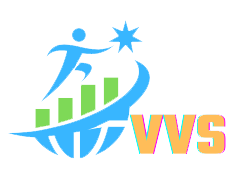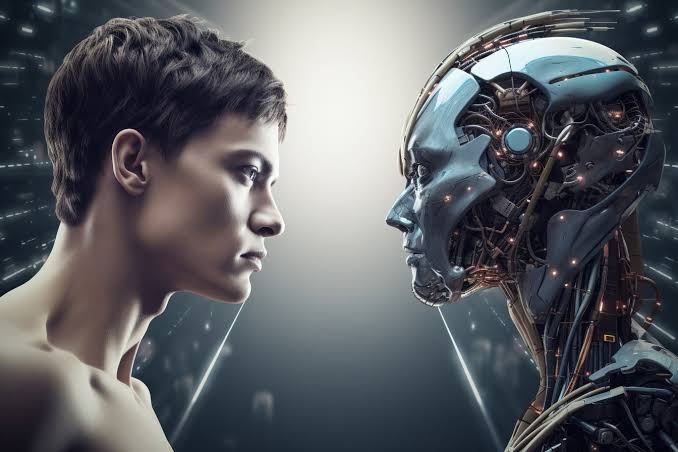Introduction
Artificial intelligence (AI) and virtual assistants are now commonplace in today’s world of quickly expanding technology. Virtual assistants, like Siri, Alexa, Google Assistant, and Cortana, have developed to help us with tasks, deliver information, and even entertain us. However, it’s important to consider how AI and virtual assistants will develop in the future and whether they will merge or remain separate entities as we look to the future. The future of AI vs virtual assistants, their potential confluence, and the repercussions for society will all be discussed in this blog.
Let’s quickly evaluate the present environment before moving on to the future. From computer vision and robotics to machine learning and natural language processing, artificial intelligence (AI) spans a broad spectrum of technologies and applications. On the other hand, virtual assistants are particular AI programmes created to communicate with users using voice or text interfaces.
Virtual helpers like Siri and Alexa are capable of doing things like setting reminders, responding to inquiries, navigating through smart home controls, and even having informal conversations. However, they are only capable of performing predetermined duties and functions.
The future of AI is nothing short of revolutionary. Following are some major developments that will affect AI going forward:
1. Developments in deep learning: Deep learning methodologies will evolve, enabling AI systems to process and comprehend enormous volumes of data with growing precision. Their capacity to forecast and decide will improve as a result.
2 Using AI in Healthcare: From disease detection to individualised treatment regimens, artificial intelligence will be a key component of healthcare. Telemedicine systems and medical gadgets with AI-driven functionality will spread.
3. Systems with Autonomy: Industry sectors including transportation, agriculture, and manufacturing will undergo radical change as autonomous vehicles, drones, and robots develop greater intelligence and autonomy.
4. AI in Creativity: In creative professions like art, music, and literature, AI will work alongside humans, enhancing human ingenuity and maybe resulting in the creation of totally new art forms.
5. Regulation and Ethics in AI: The emphasis on moral questions and laws to ensure ethical AI development and application will increase as AI’s influence expands.
While virtual assistants have made our lives more convenient, their future is equally promising:
1. AI for conversation: In order to make themselves more interesting and natural to communicate with, virtual assistants will become increasingly more conversational and human-like in their interactions.
2 Personalization: Virtual assistants will become more and more indispensable for activities like shopping, content discovery, and daily planning as they can now customise their responses and recommendations to each user’s interests.
3. Interfaces with Multiple Modes: A seamless user experience will be provided by virtual assistants as they move beyond voice to encompass multi-modal interfaces including text, gestures, and augmented reality
4. Integration with AI: : Users will be able to easily access and control a variety of AI-powered services and devices thanks to the seamless integration of virtual assistants into larger AI ecosystems. and application will increase as AI’s influence expands.
We can expect a confluence of AI and virtual assistants as AI develops further. Artificial intelligence (AI) technology will enable virtual assistants to carry out more difficult jobs, comprehend context better, and offermore useful and individualised support. These are some possible manifestations of this convergence:
1. Supercharged Virtual Assistants: Advanced AI skills will be used by virtual assistants to complete activities that presently call for specialised software or services. They could help with programming, complicated data analysis, tutoring, etc.
2. Decision-Making Driven by AI: With the help of powerful AI algorithms, virtual assistants will develop into trustworthy advisors that can provide recommendations and insights. This may be relevant to choices on finances, health care, and other matters.
3. Integrated Efficacy: Our homes, offices, and daily lives will all have a variety of AI-powered gadgets and services that will connect smoothly with virtual assistants. A unified AI ecosystem will be produced as a result.
4. Compatibility Across Platforms: Virtual assistants will be able to access users’ favourite assistants regardless of the device or service they are using because they will function across various platforms and ecosystems.
Virtual assistants and AI both have bright prospects for the future and are expected to develop together, building on one another’s strengths. While virtual assistants will continue to play a bigger role in our daily lives, AI will continue to change sectors. As AI and virtual assistants combine, a new era of individualised, intelligent, and seamless support will emerge, revolutionising how we work, play, and interact with technology. To guarantee that this future benefits society as a whole, it is imperative to continue paying close attention to ethical issues, data protection, and responsible AI development.


Comments (75)
sign up for binance - March 17, 2025
Your article helped me a lot, is there any more related content? Thanks!
binance odkazov'y kód - March 17, 2025
Your article helped me a lot, is there any more related content? Thanks!
Creati un cont personal - March 18, 2025
I don’t think the title of your article matches the content lol. Just kidding, mainly because I had some doubts after reading the article.
binance Препоръчителство - March 18, 2025
Can you be more specific about the content of your article? After reading it, I still have some doubts. Hope you can help me.
binance - March 18, 2025
I don’t think the title of your article matches the content lol. Just kidding, mainly because I had some doubts after reading the article.
binance h"anvisningskod - March 19, 2025
Can you be more specific about the content of your article? After reading it, I still have some doubts. Hope you can help me.
www.binance.com рестраця - March 19, 2025
Thanks for sharing. I read many of your blog posts, cool, your blog is very good.
registro na binance - March 19, 2025
Your article helped me a lot, is there any more related content? Thanks!
binance - March 21, 2025
Thanks for sharing. I read many of your blog posts, cool, your blog is very good.
binance signup bonus - March 21, 2025
Can you be more specific about the content of your article? After reading it, I still have some doubts. Hope you can help me.
account binance aperto - March 22, 2025
Thank you for your sharing. I am worried that I lack creative ideas. It is your article that makes me full of hope. Thank you. But, I have a question, can you help me?
binance - March 22, 2025
Thanks for sharing. I read many of your blog posts, cool, your blog is very good. https://accounts.binance.com/fr-AF/register?ref=JHQQKNKN
binance account - March 23, 2025
I don’t think the title of your article matches the content lol. Just kidding, mainly because I had some doubts after reading the article. https://accounts.binance.com/ro/register?ref=V3MG69RO
Altıntepsi su kaçak tespiti - March 23, 2025
Altıntepsi su kaçak tespiti Güler Yüzlü Hizmet: Ekip çok profesyonel olmasının yanı sıra oldukça güler yüzlüydü. Tüm sorularımıza sabırla yanıt verdiler. https://erugu.com/uskudar-tesisatci-tikali-lavabo-acma/
最佳Binance推荐代码 - March 24, 2025
I don’t think the title of your article matches the content lol. Just kidding, mainly because I had some doubts after reading the article.
binance - March 24, 2025
Can you be more specific about the content of your article? After reading it, I still have some doubts. Hope you can help me. https://www.binance.com/es-MX/register?ref=JHQQKNKN
binance konto - March 24, 2025
Thank you for your sharing. I am worried that I lack creative ideas. It is your article that makes me full of hope. Thank you. But, I have a question, can you help me?
binance signup - March 25, 2025
I don’t think the title of your article matches the content lol. Just kidding, mainly because I had some doubts after reading the article. https://accounts.binance.com/en/register-person?ref=JHQQKNKN
Registrieren - March 26, 2025
I don’t think the title of your article matches the content lol. Just kidding, mainly because I had some doubts after reading the article.
Daftar Binance - March 26, 2025
Your article helped me a lot, is there any more related content? Thanks! https://accounts.binance.com/fr-AF/register-person?ref=JHQQKNKN
Skapa ett gratis konto - March 27, 2025
I don’t think the title of your article matches the content lol. Just kidding, mainly because I had some doubts after reading the article.
registrera dig f"or binance - March 27, 2025
Thank you for your sharing. I am worried that I lack creative ideas. It is your article that makes me full of hope. Thank you. But, I have a question, can you help me?
sign up binance - March 27, 2025
Thanks for sharing. I read many of your blog posts, cool, your blog is very good.
Anonymous - March 28, 2025
Can you be more specific about the content of your article? After reading it, I still have some doubts. Hope you can help me.
ซีรี่ย์จีน - March 30, 2025
Have you ever considered publishing an ebook or guest authoring on other sites? I have a blog based upon on the same information you discuss and would really like to have you share some stories/information. I know my audience would value your work. If you’re even remotely interested, feel free to shoot me an e-mail.
https://dunnung.com